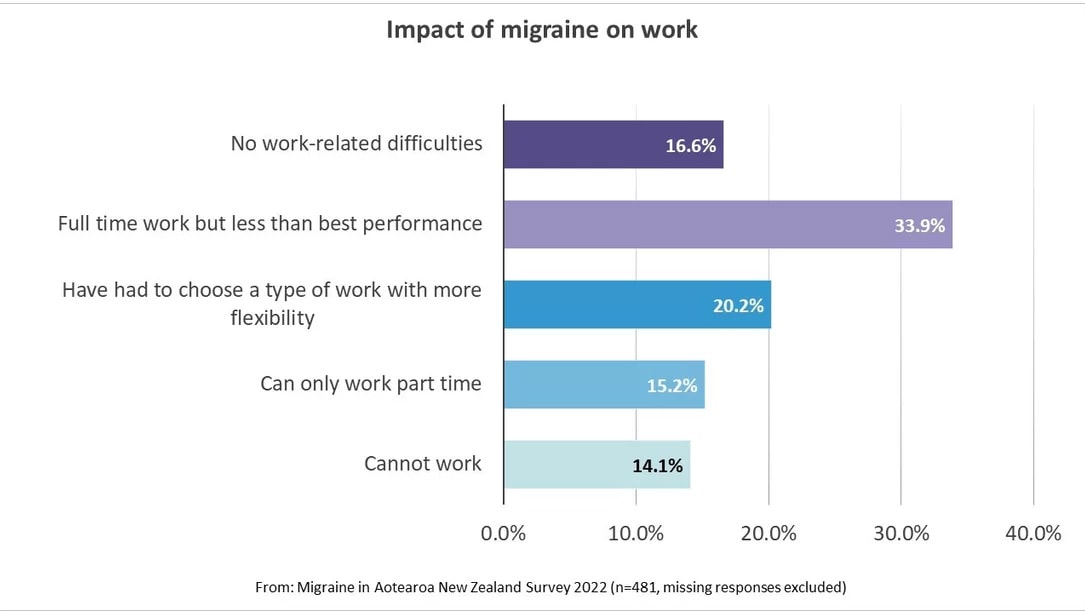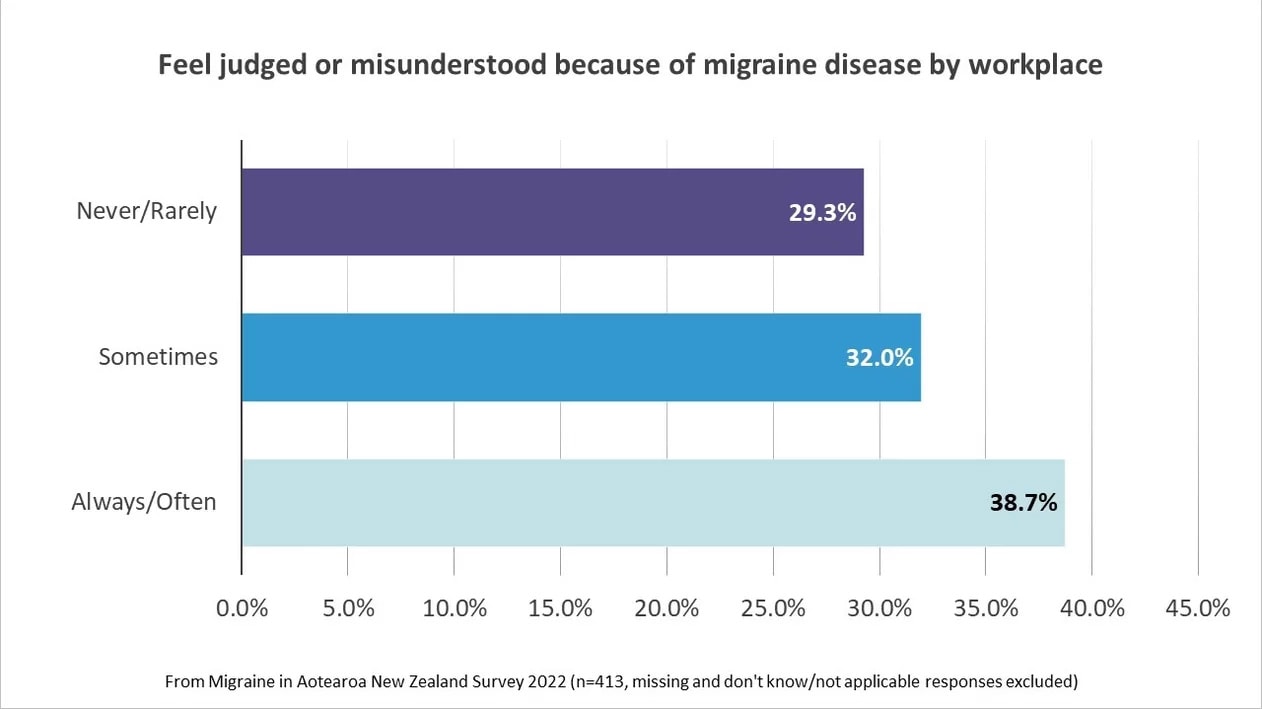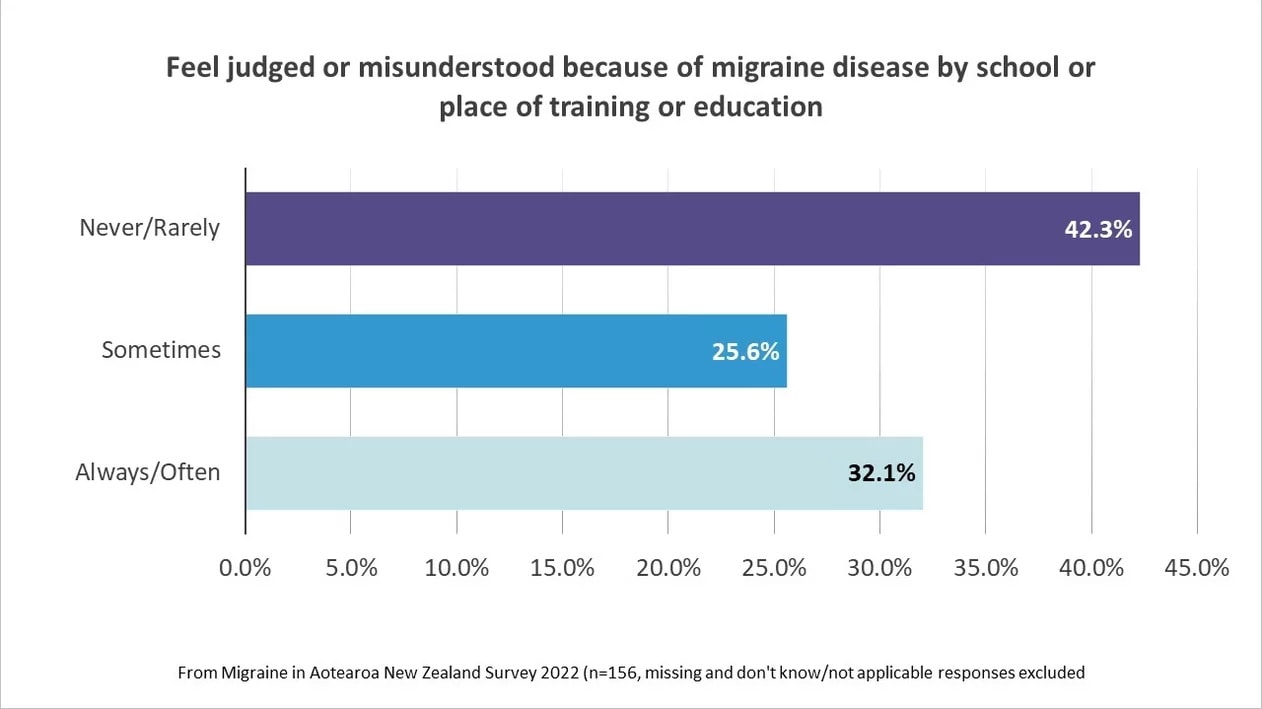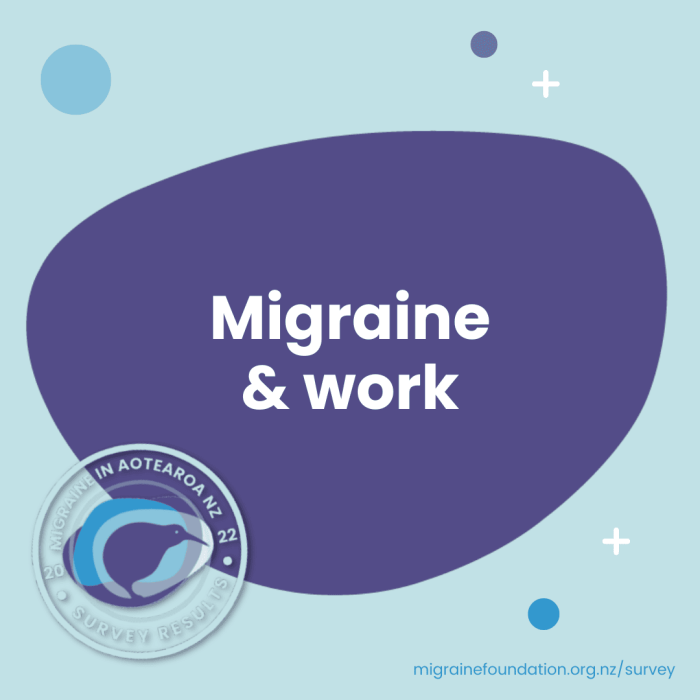Results from the Migraine in Aotearoa New Zealand Survey 2022
One of the most devastating impacts of migraine disease is how it can affect our ability to work. Many people, particularly those with chronic migraine, are unable to work or have to reduce the amount of work they do. ¹ In the 2022 Migraine in Aotearoa New Zealand Survey, respondents were asked about the impact of migraine on work, with those who were not currently working asked to imagine trying to work with their current migraine condition.
Only 16.6% reported no work-related difficulties. A third said they worked full-time but were not working at their best. This is known as ‘presenteeism’ where people stay at work even when they are unwell but they can’t be as productive as they normally would be.

Presenteeism can arise because people feel unable to tell employers and workmates that they are sick, often due to fear of being judged or discriminated against.² Results from the Migraine in Aotearoa New Zealand Survey confirm that feeling judged or misunderstood in the workplace because of migraine disease is common, with seven out of ten workers experiencing this sometimes or more often.

Those in school or training also report high levels of feeling judged or misunderstood because of migraine.

People with migraine tend to be fairly tough, having to deal with high levels of pain and disability on a frequent but unpredictable basis. They often prioritise work, even sacrificing time with family and social activities to make up for work time lost because of migraine. But it can be hard to talk about migraine at work and ask for support. We may risk being penalised, lose opportunities or even lose our jobs.
Instead of seeing people with migraine as a liability, workplaces and schools need to recognise and value their determination and resilience to continue working even with a significant neurological condition. Instead of judging, workplaces and schools would do well to offer accommodations for employees and students with migraine, finding out what each individual needs to work and study most productively. It’s also worth remembering that migraine can be a disabling disease. It’s a human right to work and it’s unlawful to discriminate against people with a disability in the workplace. It’s not only compassionate and advantageous for employers to support workers who are affected by migraine, it’s the law.
Resources
- For Employees, Migraine at Work
- Essential strategies for coping with migraine at work we love, Migraine Strong
- Discrimination at work, Te Kāwanatanga o Aotearoa New Zealand Government
References
- Young WB, Park JE, Tian IX, Kempner J. The Stigma of Migraine. PLoS One. 2013;8(1):e54074. Available from: www.plosone.org
- Perugino F, de Angelis V, Pompili M, Martelletti P. Stigma and Chronic Pain. Pain and Therapy. 2022 Aug 5;1–10. Available from: https://link.springer.com/article/10.1007/s40122-022-00418-5


